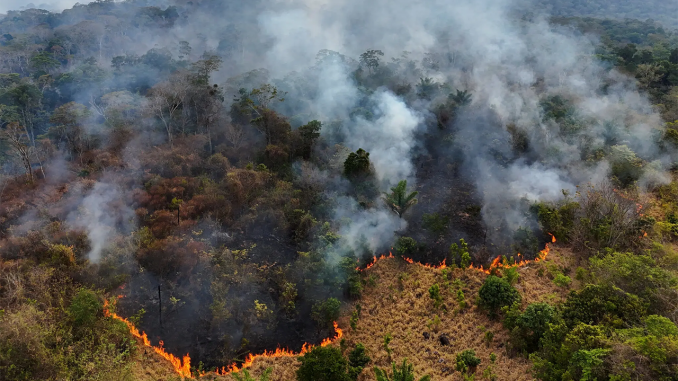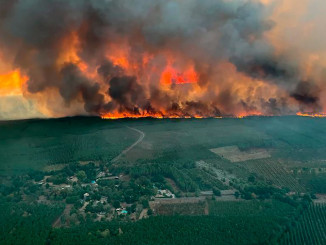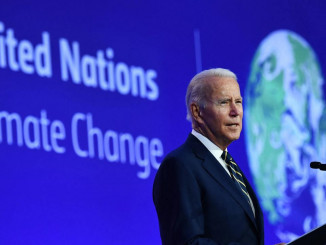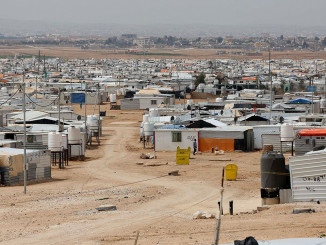
A new study released last month estimates that if current patterns of global warming, drought and fires persist, nearly 47% of the Amazon rainforest (by far the world’s largest rainforest) could collapse and become grasslands or other types of ecosystems. In this case, huge amounts of carbon could be released into the atmosphere, adding to and worsening the global climate change already well underway.
To illustrate the point more clearly, in the past month, as the dry season ends and the rainy season is supposed to set in, part of the northern Amazon have seen a record number of forest fires, and the fires have been larger than ever before. These fires have spread over northern Brazil, as well as southern Colombia, Venezuela and Suriname, leaving firefighters in all four nations scrambling to combat the blazes.
These fires (like those in Australia, Canada, Portugal and the southern and western U.S. in recent years) are caused by higher global and regional temperatures which leads to drought and increasingly dry vegetation, increasing the risks that small fires can become megafires. These factors in turn are caused by carbon emissions from industry and automobiles that churn out commodities for profit for the major corporations and the One Percent. In Brazil and the Amazon, the continued burning of forests for cattle grazing and other agriculture by ranchers and big agribusiness also contribute directly to the problem.
The protection and preservation of the entire Amazon has long been seen as necessary to keep the climate crisis from getting worse, and this study and the current fires are yet more flashing warning signs telling us that we must stop the actions that are destroying our planet. Just like a shutdown of the Atlantic Meridonial Overturning Circulation could trigger huge changes for how humans survive on our planet, so could the collapse of the Amazon.
As one Brazilian researcher asked: “Sometimes science takes a little longer to inform what we need…Are we going to wait and see, and blame uncertainty for not doing anything?”
We actually aren’t uncertain. The fires that are ravaging our world are a direct result of the capitalist mode of production for profit. Because corporations and the 1% need to continually increase their rate of profit, they will continue to pump out carbon to produce automobiles and other commodities that they sell for profit, no matter the cost to our environment. That’s simply not their primary concern.
And no, we absolutely cannot wait. We must act now to keep the problem from getting far worse for ourselves today and for future generations. We must do something. And just changing our personal behavior won’t be enough. We have to change the system that is driving the destruction.




